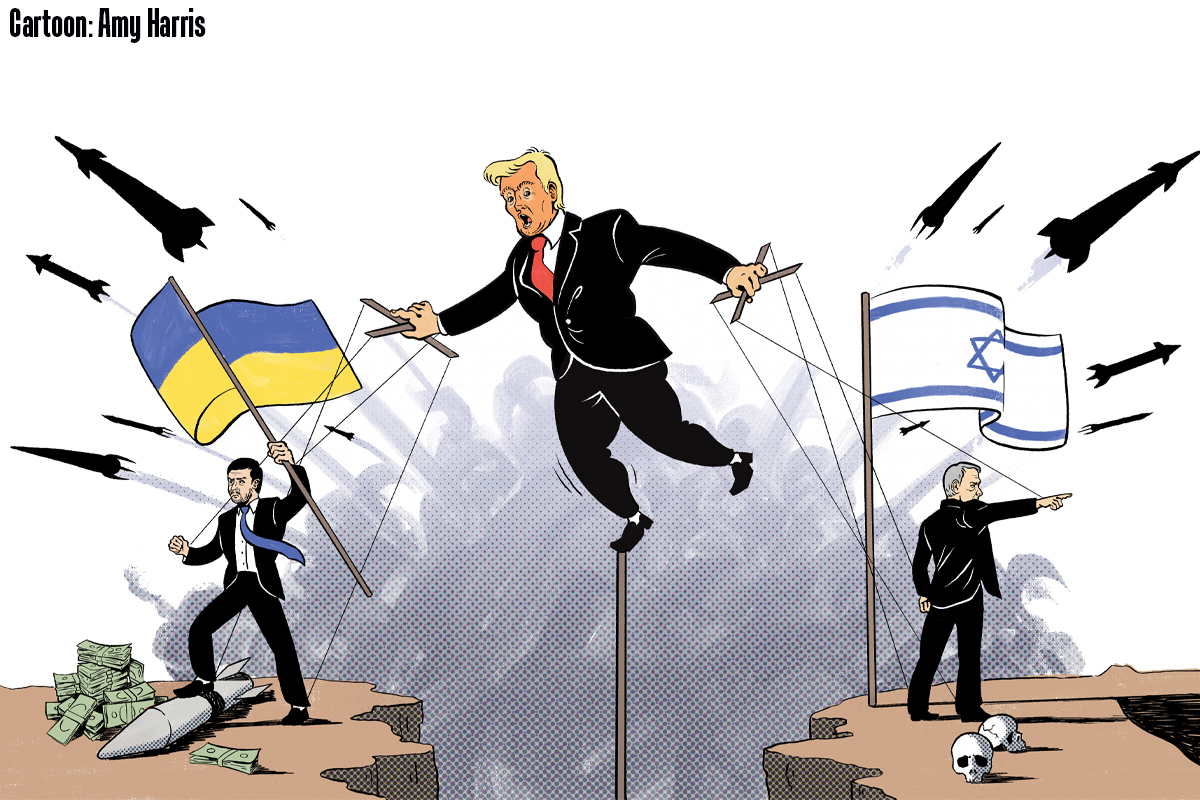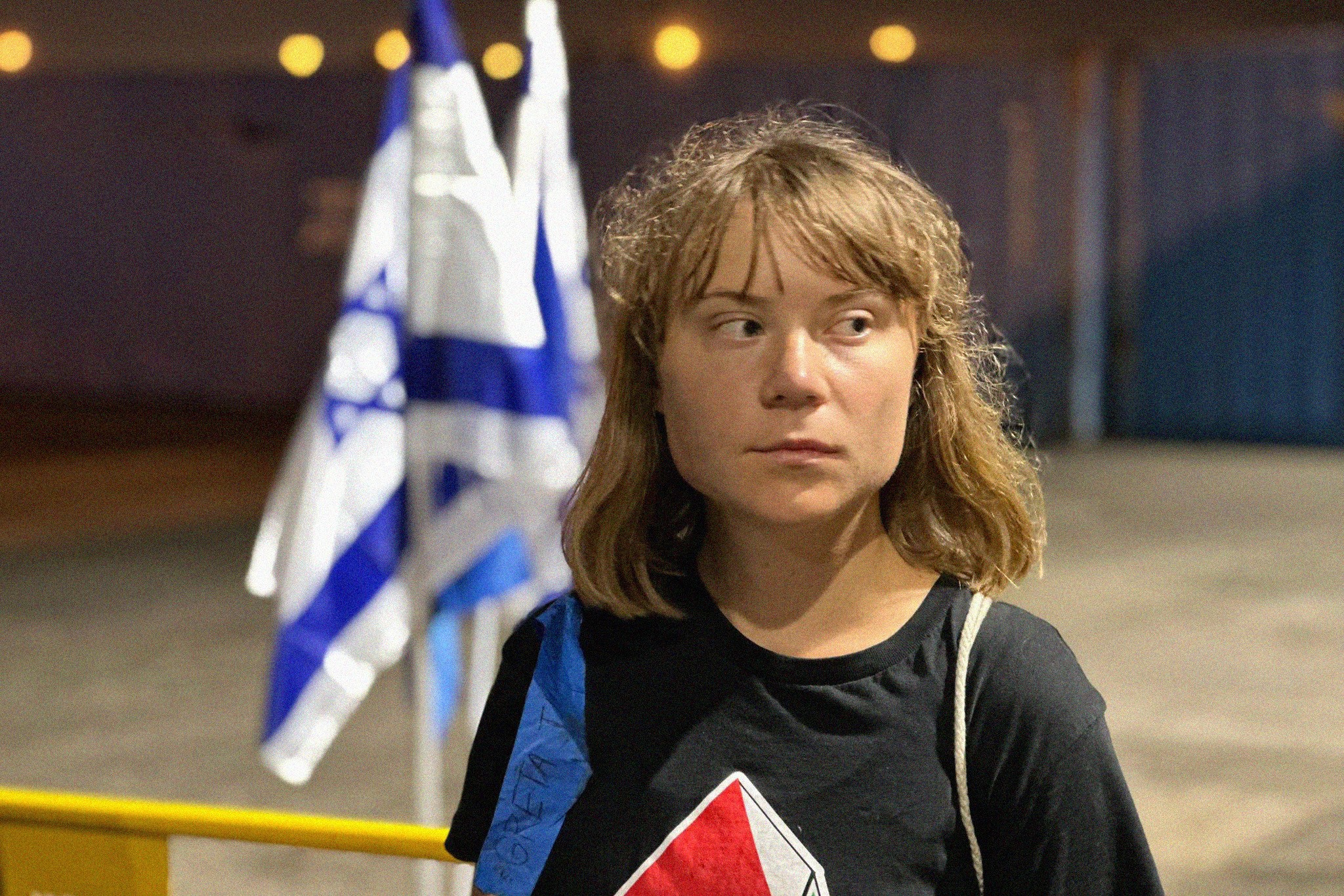On Tuesday
May 25, the US imposed penalties against Venezuelan state-owned company
PDVSA, and another 6 companies from other countries, for conducting
business with Iran. The sanctions are part of an attempt by Washington
to step up the pressure against Iran in relation to its nuclear program.
They are also an act of blatant bullying directed against Venezuela.
On Tuesday
May 25, the US imposed penalties against Venezuelan state-owned company
PDVSA, and another 6 companies from other countries, for conducting
business with Iran. The sanctions are part of an attempt by Washington
to step up the pressure against Iran in relation to its nuclear program.
They are also an act of blatant bullying directed against Venezuela.
Trabajadores de PDVSA por el control obreroThese
penalties are imposed within the framework of the Comprehensive
Iran Sanctions, Accountability, and Divestment Act passed in the US in
July 2010, which expands and tightens the 1996 Iran Sanctions Act. They
mean that PDVSA will be barred from any U.S. government contracts, U.S.
import-export financing and export licenses for sensitive technology.
However
this will not affect PDVSA oil sales to the US (which amount to 1.2
million barrels a day) nor the operations of PDVSA’s subsidiary in the
US, CITGO. The Americans do not like Hugo Chavez, but they are very
partial to Venezuela’s oil. Therefore, their “hard line” does not extend
to an oil embargo.
These acts have no standing in international
law as they attempt to rule over the activities of companies,
individuals or governments outside the USA, and therefore outside of
the jurisdiction of US law. However, international legality has never
worried imperialism. The sanctions and boycott laws against the Cuban
Revolution implemented by Washington are also illegal and have been
rejected on numerous occasions by the United Nations, which has not made
an atom of difference.
International law, the UN, the ICHR and
other international institutions are just a fig leaf to cover, on
occasion, the real intentions of US imperialism. If they are able to get
their aims backed by “international law” that is useful, of course,
from the point of view of fooling public opinion, but if for whatever
reason they cannot, they just go ahead regardless.
When all is
said and done, international relations are based on the power one
country has to impose its will on others. It is based, not on abstract
principles or legality, but on gunships, aircraft carriers and missiles.
And since the USA is by far the largest military power on earth, no-one
is going to impose “internal law” on them.
As well as being
directed against Iran, these penalties are also part of the propaganda
campaign against Venezuela, particularly in the run up to the crucial
2012 presidential elections. As a matter of fact (so far at least) these
penalties will not seriously affect the operations of PDVSA. Their aim,
at the moment, is mainly to strengthen the propaganda campaign against
Chavez and the Venezuelan revolution.
US Senator Richard Lugar,
the highest-ranking Republican in the US Senate Committee on Foreign
Relations, spelt this out clearly when he said that penalties against
PDVSA were the result of: "Venezuela’s unwillingness to break relations
with terrorist organizations and with countries which sponsor them.”
This
is the voice of imperialist arrogance. The rulers of the USA claim to
have the right to dictate to other countries that they do business with,
and if they don’t comply, they will be “leaned upon”. These are the
methods, not of international law, but of a Mafia Godfather.
Similar statements have been coming out of the United States recently:
“Chavez
is making himself the Osama Bin Laden and the Ahmedinejad of the
Western Hemisphere,” Rep. Connie Mack (R-FL) told Republicans during the
Conservative Political Action Conference in Washington in February
2011.
“Chavez himself could develop a nuclear weapon,” said Roger
Noriega, Former Assistant Secretary of State for the Western Hemisphere,
during the “Danger in the Andes” conference in Congress on November 17,
2010.
“We need a systematic policy to change the regime in
Venezuela and that is serious issue,” added John P. Waters, former
director, White House Office of Drug Control Policy, on November 17,
2010.
The idea is to smear the Bolivarian revolution and the
government of Hugo Chávez as “supporters of terrorism”, “developing
nuclear weapons” and generally linking them up with “rogue regimes”, in
order to prepare public opinion in the USA and elsewhere for action
against the Venezuelan revolution.
The latest episode of this propaganda campaign is the bizarre allegation by the German sensationalist newspaper Die Welt,
that the Chavez government had reached a secret deal with Iran, so that
Iran could build medium-range missile launch pads in the Paraguaná
peninsula in Venezuela. The only source given for this clearly false
allegation was “Western security insiders”.
Then we had the
publication by the London-based International Institute of Strategic
Studies of a selection of emails and documents allegedly coming from the
laptops of FARC commander Raul Reyes which “prove” that the Venezuelan
government has been supporting and harbouring the Colombian “FARC
terrorists”.
Never mind the fact that Interpol itself declared that thousands of those files had been modified (i.e. doctored) and created after
the laptops were seized by the Colombian army, that the chain of
custody had not been properly secured and that proper forensic
procedures had not been followed in handling them.
Never mind the fact that the Colombian Supreme Court has just ruled that any evidence from the Raul Reyes laptops is not admissible in court because it was obtained during an illegal incursion into Ecuadorean territory. Clearly, the IISG does not think that the facts should be allowed to get in the way of a good story.
It
should be noted that the IISG is the same institute which also produced
the infamous report on weapons of mass destruction which served to sell
the case for the invasion of Iraq to the British public. The point is
that by publishing these so-called emails and files they have captured
the headlines about Venezuela for a couple of days and strengthened the
idea that Venezuela is a country that supports terrorists and therefore
“something must be done about it”.
The publication of these “documents” after
the Venezuelan government handed over Colombian political exile Joaquín
Pérez Becerra to the authorities in Bogotá is very significant. It
shows that no amount of appeasement and concessions made to Washington
and its puppets in Colombia will stop the campaign against the
Venezuelan Revolution. Let’s not forget that the “proof” that Bogotá
used to accuse Perez Becerra was based on the same Raul Reyes laptops
files which have been now been ruled inadmissible by the Colombian
Supreme Court.
From the point of view of the Venezuelan
Revolution, PDVSA is an extremely sensitive target. It was the
revolution which unraveled plans for the privatization of the oil
company. It was the sacking of the pro-imperialist and reactionary PDVSA
managers by Chavez which sparked the coup in 2002. It was PDVSA which
was the main target of the criminal bosses’ lock out of December 2002
and January 2003, when thousands of well paid engineers and managers of
the company abandoned their jobs and sabotaged the operations with the
aim of bringing down the democratically elected government.
It was
when the Bolivarian government took over PDVSA that it got the
necessary resources to launch the massive social programs (Misiones)
to deliver health care, education and subsidized food products to the
majority. It is no surprise then that opposition members of the
Venezuelan National Assembly refused to vote for a resolution condemning
the sanctions against PDVSA and calling on the government to take
retaliatory measures. They have shown who their master is. The
Venezuelan oligarchy is anti-national and pro-imperialist. They would
rather have their own country taken over by imperialism, than accept the
democratic will of the majority of Venezuelans.
In each one of
these occasions in which PDVSA was threatened by the attacks of the
reactionary ruling class, it was the mobilization of the people and the
workers that saved the revolution. In the case of the oil sabotage it
was particularly the oil workers, who took over the installations and
ran them under workers’ control, which defeated the reactionary
offensive. For this reason it is absolutely correct that the response of
the Foreign Affairs Ministry to this latest provocation from Washington
“calls on all the Venezuelan people, the working class and especially
the oil workers, to stay alert and mobilized in defense of our PDVSA and
the sacred sovereignty of the homeland.”
It has been proven
time and time again that only the revolutionary mobilization of the
workers and the poor can effectively defend the Venezuelan revolution
and inspire the workers of the world to come to its support. No amount
of diplomatic maneuvering can achieve that.
In a previous
occasion when, faced with the provocations from Washington, Chavez
threatened to cut oil supplies to the US, the Venezuelan oil workers
responded with a massive march in Caracas. They declared they were ready
to defend the revolution, but at the same time pointed out the
sabotaging role played by many of the managers in the oil industry, not a
small number of them having participated in the 2002-03 sabotage and
having sneaked back into the industry. The oil workers pointed out that
only through workers’ control in PDVSA could the industry be defended
against attacks and sabotage and this is absolutely correct.
The oligarchy, the capitalists, bankers and latifundia
owners, are the direct agents of imperialism in Venezuela, as was
graphically shown in the National Assembly vote. In order effectively to
defend the country against imperialist attacks and provocations their
power needs to be broken. Above all this means their economic power.
Their properties should be expropriated and put under democratic
workers’ control. The marvelous national gathering of socialist workers’
councils to discuss workers’ control, which took place at the SIDOR
steel works on May 21-22 with the presence of 900 worker representatives
from all over the country, shows the way forward.
The revolution
can be defended against imperialism if it is completed as a socialist
revolution, abolishing capitalism. On that basis it can launch an
internationalist appeal for the workers in other countries to follow its
example. Such a call would have an electrifying impact throughout Latin
America, but also in the Arab world and in Europe and the USA where the
workers are now being made to pay the price of the crisis of
capitalism.
- Down with imperialism!
- Defend the Venezuelan revolution!
- Long live international socialism!






